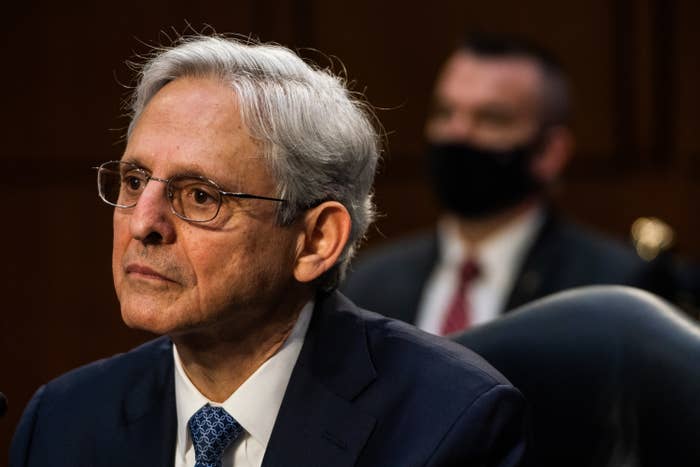
WASHINGTON — The US Senate voted 70–30 on Wednesday to confirm Merrick Garland as President Joe Biden’s first US attorney general, nearly five years to the day after he was nominated to the Supreme Court in a bid that was blocked by Republicans.
Garland leaves behind a lifetime appointment as a federal appeals judge to take over the Justice Department in the middle of a sprawling investigation into the Jan. 6 insurrection at the US Capitol. With more than 300 people charged to date and hundreds more under investigation, Garland said at his confirmation hearing last month that shepherding these prosecutions would be his top priority.
His nomination enjoyed bipartisan support, a sharp departure from the Republican-led effort to block his nomination to the US Supreme Court in 2016. Twenty Republicans, including Senate Minority Leader Mitch McConnell, who had led the charge against him five years ago, voted to confirm him as attorney general on Wednesday. Garland remained on the US Court of Appeals for the DC Circuit and mostly stayed out of the limelight throughout former president Donald Trump’s four years in office; he recused himself from any involvement in ethics complaints filed in the DC Circuit in 2018 against Justice Brett Kavanaugh, who was a DC Circuit judge when Trump nominated him for the Supreme Court.
His confirmation as attorney general marks a return to the Justice Department, where he served as a high-ranking official in the mid-1990s before his nomination to the DC Circuit by former president Bill Clinton in 1997. He has described his experience leading the federal investigation into the Oklahoma City bombing in 1995 as among the most important of his career.
Garland spoke at his confirmation hearing about drawing on that background not only to manage the Capitol insurrection investigation but also to tackle the spread of white supremacy in the United States. He said there was a line that connected Jan. 6 to the Oklahoma City bombing and back to the “battles of the original Justice Department against the Ku Klux Klan.”
“We must do everything in the power of the Justice Department to prevent this kind of interference with the policies of American democratic institutions, and I plan, if you confirm me for attorney general, to do everything in my power to ensure that we are protected,” Garland told the Senate Judiciary Committee.
Although the FBI and federal prosecutors have steadily brought charges related to the insurrection in the weeks since Jan. 6, there are hundreds of open case files. Two of the most serious incidents that day — the death of US Capitol Police officer Brian Sicknick and the planting of pipe bombs outside the headquarters of the Republican National Committee and Democratic National Committee — remain unsolved. The FBI on Tuesday released new video footage of a person wanted in connection with the two pipe bombs, which were disabled and did not harm anyone; there is a $100,000 reward for information that leads to an identification.
Garland will now oversee the Justice Department’s efforts to untangle and resolve the many legal messes that Trump left behind. He’ll also take over a Justice Department that saw a dip in morale among career employees under Trump. Garland’s predecessor Bill Barr faced rare public revolts from prosecutors who raised concerns about political interference in cases, investigations, and administrative matters; Barr’s effort to remove Geoffrey Berman as US attorney in Manhattan nearly triggered a legal fight within the Justice Department.
Garland spoke last month about the need to “protect the independence of the Department from partisan influence.” As a judge, he did not have a reputation as an ideological warrior. He generally sided with the court’s more liberal-leaning judges in politically divisive cases, although reviews of his record while his Supreme Court nomination was pending in 2016 found he tended to lean more conservative and side with law enforcement in appeals that involved criminal cases.
Biden has three other Justice Department nominees pending before the Senate. Lisa Monaco and Vanita Gupta, who are nominated for the department’s number two and number three positions, respectively, appeared before the Senate Judiciary Committee on Tuesday. The committee hasn’t set a hearing date yet for Kristen Clarke, who is nominated to lead the Civil Rights Division.
Garland's confirmation officially frees his seat on the powerful DC Circuit for Biden to fill with a new judge. The court is the main venue for fights over executive power and agency actions, and it has long served as a springboard to the Supreme Court. Biden has two vacancies on that bench to fill so far since Judge David Tatel recently announced he would take senior status.

